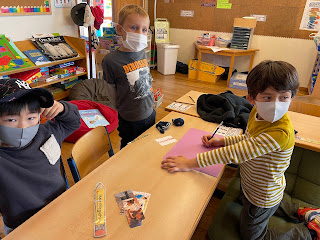What are the different kinds of relationships?
The preschoolers sorted out pictures according to similarities, connections, and relationships. Together we identified 4 kinds of relationships.
1. Romantic Relationship
2. Family Relationship
3. Friends
4. Acquaintances
Do I know my own feelings?
Children should develop skills in understanding their own emotions and knowing how to react to certain situations. This emotional awareness is important for them to better know and understand themselves, their personalities and characteristics and how these affect their relationships with others.
Using the Emoji Compass Activity, the preschoolers were presented with a scenario and decided on which emojis to go: happy, angry, sad, worried or calm. They were encouraged to think for themselves and identify their own feelings as if they are in that situation.
Sample Scenario:
"You are playing a game that you really like and you lost. How would you feel?"
Responses:
Angry: "Because I always like to win"
Sad: "Because I do not want to lose."
Calm: "We don't always win, we sometimes lose too."
We sat together after and they shared their thoughts.
They realised that...
"Knowing our feelings and the feelings of others avoid us from getting in trouble".
"If we know other people's feelings, what they like and what they don't like then we will be able to do something about it."
Christmas Ornaments
Christmas is just around the corner for the Preschoolers!
The preschoolers created an ornament for the DSKI Christmas Tree.
A woven yarn wreath decorated with pompoms.
During the Christmas Lighting Event, all the classes received an Advent Calendar personally made by the PTA! Today we opened one envelope. The students are excited to have their turn in our Advent Calendar.
Here's a treat for everyone!
Preschoolers singing 'Deck the Halls'















Comments
Post a Comment